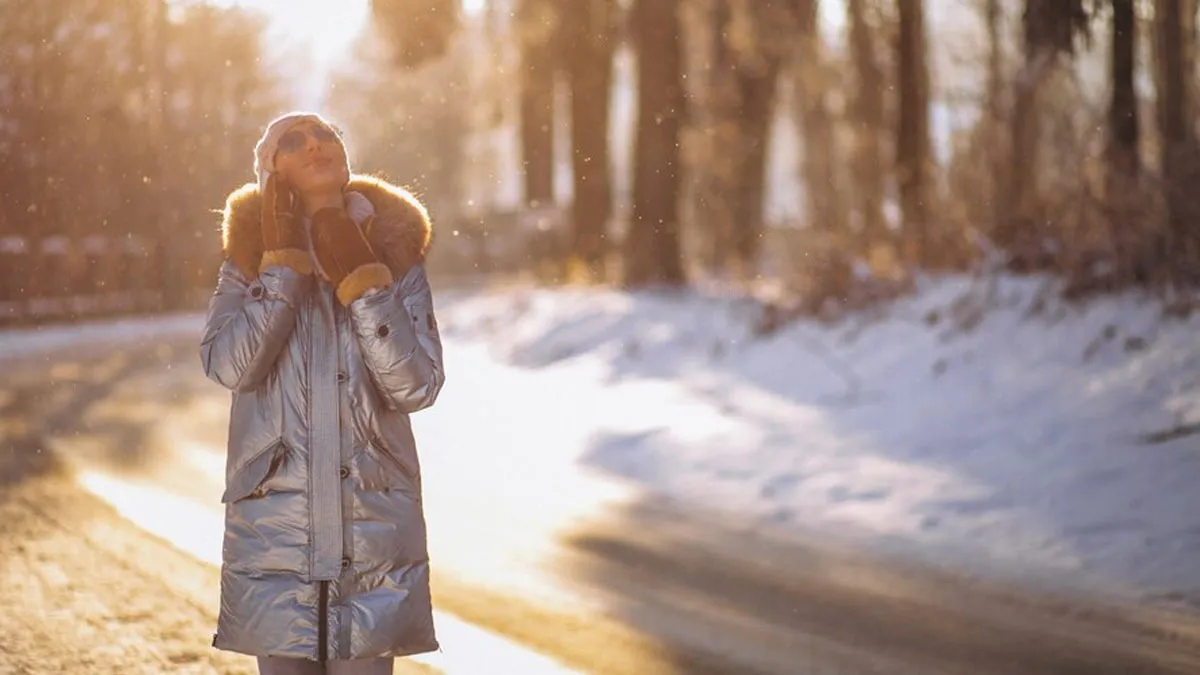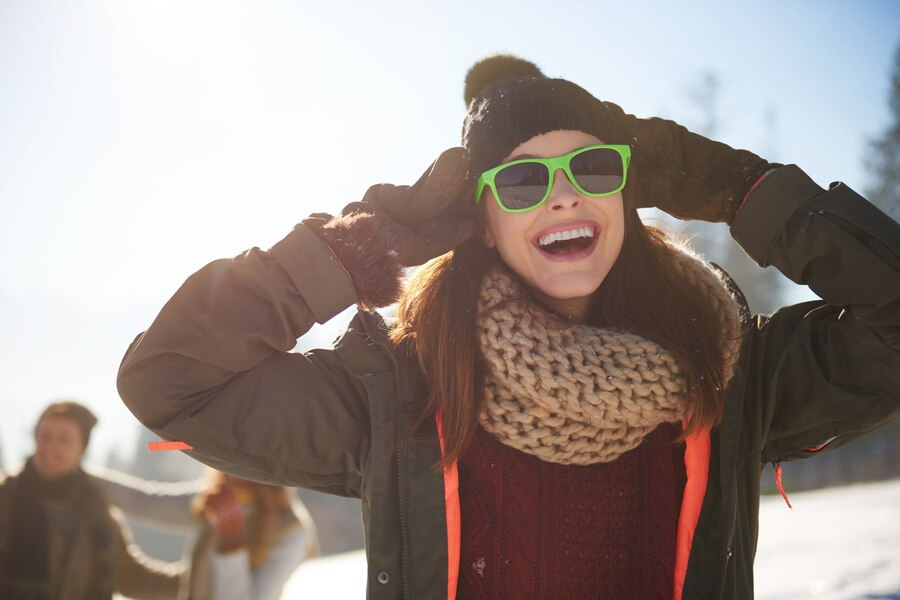
When we think of sun protection, summer beaches and sunny days often come to mind. However, UV rays don’t take a sabbatical in winter. Even in freezing temperatures, they can cause significant harm to your skin, and lead to premature ageing, wrinkles, and an increased risk of skin cancer, as per the National Skin Cancer Centres.
Table of Content:-
Contrary to popular belief, the cold season can intensify the impact of UV rays, especially at high altitudes or on snowy days. Here’s how you can protect your skin from harmful UV rays while making the most of this chilly season.
RELATED: Can Pimple Breakouts Be A Symptom of Skin Cancer?
1. Don’t Skip The Sunscreen

Sunscreen isn’t just for summer. Even on cloudy or cold days, harmful UV rays penetrate the atmosphere and can damage your skin.
- Make sure your sunscreen has at least SPF 30 and is broad-spectrum.
- Put a thick layer on your hands, face, neck, and any other exposed areas.
- Reapply every two hours, especially if you’re skiing or engaging in outdoor activities.
Winter conditions, such as reflective snow, can double UV exposure, so sunscreen is your best defence.
2. Wear Protective Clothing
Layering up is not just for warmth, it’s also an effective way to block UV rays. This physical barrier ensures minimal skin exposure to the sun’s harmful rays.
- Choose long-sleeved jackets, gloves, and scarves to shield your skin.
- Opt for tightly woven fabrics that don’t let sunlight seep through.
- Add a wide-brimmed cap (topi) to protect your face and neck.
3. Don’t Forget Your Eyes and Lips
UV rays can harm not just your skin but also your eyes and lips. Snow glare can be particularly harsh, increasing your risk of damage, which is why you should wear wraparound sunglasses or ski goggles with 100% UV protection to shield your eyes.
Additionally, use a lip balm with SPF 30 or higher to prevent chapping and protect the delicate skin of your lips. By shifting your attention towards these often overlooked areas, you’ll have greater overall protection.
4. Be Mindful Of Peak UV Hours
The sun’s rays are strongest between 10 AM and 4 PM, even in winter. Adjusting your outdoor activities with the clock can help minimise UV exposure.
Seek shade whenever possible, especially during midday, if shade isn’t available, use accessories like umbrellas or wear wide-brimmed caps.
5. Double Up On Hydration and Moisture
Winter conditions can dry out your skin, making it more vulnerable to damage. Use a moisturiser with SPF to keep your skin hydrated and protected, look for products with antioxidants to help combat the effects of UV rays and drink plenty of water to keep your skin hydrated from within.
RELATED: Skin Cancer: Factors That Affect Ultraviolet (UV) Risk
Why Does Winter UV Protection Matter?

While winter days may seem less intense, they come with unique challenges as at high altitudes, thinner air means stronger UV rays, increasing your risk of sunburn. Also, snow can reflect up to 80% of UV rays, catalysing the impact. It is also essential to note that some areas may experience a thinner ozone layer in winter, reducing natural protection against UV rays.
It’s Time To Keep Away From Skin Cancer
Winter may bring cold winds and snowy hilltops, but UV rays remain a hidden danger. Simple steps like wearing sunscreen, protective clothing, and UV-blocking accessories can protect your skin from damage.
By staying proactive and incorporating these tips into your daily routine, you can enjoy the winter air without compromising your skin’s health.
Also watch this video
Read Next
How To Hydrate Your Skin In Winters
How we keep this article up to date:
We work with experts and keep a close eye on the latest in health and wellness. Whenever there is a new research or helpful information, we update our articles with accurate and useful advice.
Current Version